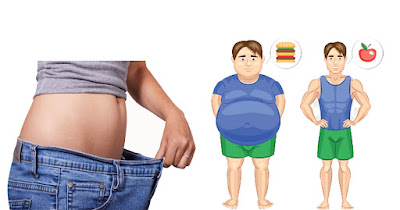Intro Physical Fitness:
 |
| Physical Fitness |
Now that your New Year’s resolutions have started to fade, it might be time to give your physical fitness routine an overhaul. Whether you’re looking to get stronger, faster, or healthier, there are many ways to do so–but only if you know how best to approach physical fitness. This info graphic explores the different personality types and explains how best to help they find their way into a healthy lifestyle that will last through the year.
Signs That You Need to Start Exercising:
Everyone knows that exercise is important, but for some of us it can feel like a chore. If you don’t feel motivated, here are a few signs that it might be time to work out: Physical Activity and physical fitness Can Help with These Health Issues: Depression/anxiety and stress-related problems Lower blood pressure Prevent certain diseases including breast cancer, heart disease, type 2 diabetes (if done regularly), stroke and high cholesterol. When Does Exercise Make You Feel Good? Some people find working out in intense bursts rewarding and others prefer long sessions at a moderate pace. Learn what physical activity works best for you by tracking your body's responses during exercise. How Do You Know What Your Ideal Level of Exercise Is?
How to Use Exercise to Relieve Stress:
It's a fact that exercise relieves stress. The many physical fitness and emotional benefits of regular aerobic exercise make it an important part of an overall health and wellness plan. But if you have not exercised in a while, getting started can be one of life's biggest challenges. And if you are among those people who hate to exercise, know that you are not alone; millions of people just like you dread stepping into a gym or going on a run. However, there is hope. There are different types of exercise programs available and no matter what your personality type is, we've got tips from trainers that will help get you moving today! With so many options available, don't let stress get between you and a healthier future!
Tips for Successful
Weight Loss:
 |
| Physical Fitness |
As with any weight-loss regimen, establishing realistic goals is a crucial first step. We’re not going to sugarcoat it—if you want that cheesecake, you’re going to have to forego your lunchtime kale salad. Sorry! However, just because you can’t (read: shouldn’t) dive headfirst into a meatball sub doesn’t mean there aren’t ways around that particular problem. For example, ordering half of your sandwich at lunch and saving half for dinner is one way you can reduce your overall caloric intake by 100 calories per meal without dramatically altering your diet or lifestyle. If you’re really serious about losing weight
quickly, we suggest consulting a registered dietitian who will help you develop an effective plan based on your specific dietary needs and health goals.
What’s Your Exercise Personality?
Are you competitive? Are you an adrenaline junkie? Do you have an inner artist that needs to be expressed through fitness? Whatever your approach, it’s important to find a physical activity that speaks to your personality type. Here are some common types of exercise personalities and tips on what motivates them. Use these examples as a guide when looking for a physical fitness that suits your personality best. If you want more specific guidance about which type of workout is best suited for you, there are tons of resources online; go with what resonates with you most!
Benefits of Running:
 |
| Physical Fitness |
For people who prefer solo sports and like a little bit of solitude with their exercise, running is ideal. Not only does it improve your overall health, but runners report feeling more self-confident once they start regularly pounding out miles. The reason: It challenges you in ways that force you to go outside your comfort zone—and when you do, you feel accomplished. Plus, with running there’s no need for extra equipment or special skills; just lace up and go. A 30-minute daily run can produce all of these positive benefits (and a few more). Running is better for your physical fitness. You don’t even have to be a seasoned athlete to get started, so grab your sneakers and try it out today!
Final thoughts:
When it comes to physical fitness, there is one thing that everyone agrees on: You should be physically active and you should exercise regularly. The type of activity doesn’t matter—walking, running; weight lifting, swimming, whatever. Whether you run a lot or not much at all, consistency matters most when it comes to physical activity as well as other habits like sleep and meditation, says Jessica Matthews, PhD in Psychology Today. You have to get into a routine that works for you so that it becomes automatic. So how can you make sure your fitness practice works for your individual personality? Below are some suggestions by Myers-Briggs type. Go over them with a friend (or yourself) to see which seems most fitting!



0 Comments